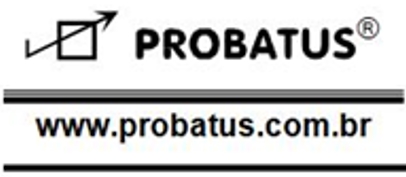Papers on Communication & Education
Title: Active Learning with Smartphones in the Learning Environment to Access Search Engines, Respond Surveys with QR Code, and Make Videos
Author: Marcelo Henriques de Brito, José Luiz Niemeyer dos Santos Filho e SAMUEL DE JESUS MONTEIRO DE BARROS
Abstract: The purpose of this work is to discuss the experience and results of employing active learning methods using smartphones in three different financial courses during three semesters. Smartphones connected to the internet enable research with search engines (e.g. Google, Yahoo!, Bing) and access to an online survey generator (e.g. SurveyMonkey),
which allows online testing on the learning content. Furthermore, smartphones may produce high-quality videos that can be uploaded to a social network (e.g. YouTube). These technological developments change the relationship between learners and tutors and support new learning techniques. Such procedures require tutors to act as a facilitator interacting
with the learners, who should be seen as active participants in an unrestrained debate where they should be encouraged to present ideas, to produce innovative work, and even to suggest improvements to the learning methodologies, what did happen during the development of the techniques presented in this work. Thus, the presented techniques, references, and results of questionnaires may improve the set of theoretical conceptions and actions on how to improve the learning environment and the relationship amid this environment with a group of learners.
Keywords: teaching-learning methods. learning strategies. active learning. peer instruction. smartphones.
Suggested Citation:
HENRIQUES-DE-BRITO, MARCELO; SANTOS FILHO, J. L. N. ; BARROS, S. J. M. . Active Learning with Smartphones in the Learning Environment to Access Search Engines, Respond Surveys with QR Code, and Make Videos. In: XLIII Encontro da ANPAD – EnANPAD 2019, 2019, São Paulo. XLIII Encontro da ANPAD – EnANPAD 2019. São Paulo: ANPAD, 2019.
Title: Applying the Interest-Expectation-Attitude Model to Internantional Relationship
Author: Marcelo Henriques de Brito
Abstract:
Keywords: Communication, International Relations, Psychology, Information, Strategy, Marketing
Suggested Citation:
HENRIQUES DE BRITO, Marcelo. Applying The Interest-Expectation-Attitude Model to International Relationship. In: III International Conference on Discourse, Communication and The Entreprise, 2005, Rio de Janeiro. DICOEN 2005, 2005.
Title: Group Behavioral Biases Affect Financial Decisions Unlike Individual Behavioral Biases
Author: Marcelo Henriques de Brito
Abstract: This work presents a new approach to behavioral finance with a theoretical contribution by suggesting and discussing with examples a list of group behavioral biases along with established individual behavioral biases, bringing, hence, an additional outlook on how behavioral biases affect financial decisions. While individual behavioral biases are detected in individuals acting alone, group behavioral biases require the scrutiny of group behavior. This awareness may be particularly important to institutional investors, whose decisions basically stem from a committee or a group that will exhibit behavioral biases depending on how the group members interact between themselves when making a decision, which may include negotiation activities and not necessarily be related to personality or hierarchy…
Keywords: Behavioral Finance, Decision-Making, Investment, Portfolio Management, Communication, Institutional Investors
Suggested Citation:
HENRIQUES-DE-BRITO, MARCELO; JARDIM, P. E. Group Behavioral Biases Affect Financial Decisions Unlike Individual Behavioral Biases. IADIS International Journal on Computer Science and Information Systems. , v.15, p.1-12 – , 2020.
Title: Communication Affects Financial Decisions And Outcomes
Author: Marcelo Henriques de Brito
Abstract: The goal of this essay with practical applications is to address and develop visual models to discuss and ease the understanding of the communication process in finance, taking into account impacts from feedback and the surrounding environment. This work also targets the relationship between a client and a financial practitioner. Besides discussing the visual models, this work describes how these models may be used to improve financial human communication. In the end of this article are key points and suggestions for future work in the field of human behavior, communication, and interaction when implementing financial decisions.
Keywords: behavioral finance, communication, investment decision-making
Suggested Citation:
HENRIQUES-DE-BRITO, MARCELO Communication Affects Financial Decisions and Outcomes In: 7º Encontro Brasileiro de Economia e Finanças Comportamentais, 2020, São Paulo. 7º Encontro Brasileiro de Economia e Finanças Comportamentais. São Paulo: FGV EAESP, 2020.
Title: Group behaviour affects financial decisions
Author: Marcelo Henriques de Brito e Paula Esteban do Valle Jardim
Abstract: This work presents a new approach to behavioral finance with a conceptual contribution by suggesting and discussing with examples a list of group behavioral biases, bringing, hence, an additional outlook on how behavioral biases affect financial decisions. While individual behavioral biases are detected in individuals acting alone, group behavioral biases require the scrutiny of group behavior. Thus, a conceptual contribution of this paper, which may be particularly relevant for institutional investors, is to explain with examples – after research and experience – which are the group behavioral biases and their impact upon financial decisions.
Keywords: Behavioral Finance, Decision-Making, Investment, Portfolio Management, Communication, Institutional Investors
Suggested Citation:
HENRIQUES-DE-BRITO, MARCELO; JARDIM, P. E. Group Behaviour Affects Financial Decisions In: International Conference on Applied Management Advances in the 21st Century 2020, 2020, São Paulo. Applied Management Advances in the 21st Century 2020. IADIS Press, 2020. v.AMA21. p.63 – 68
